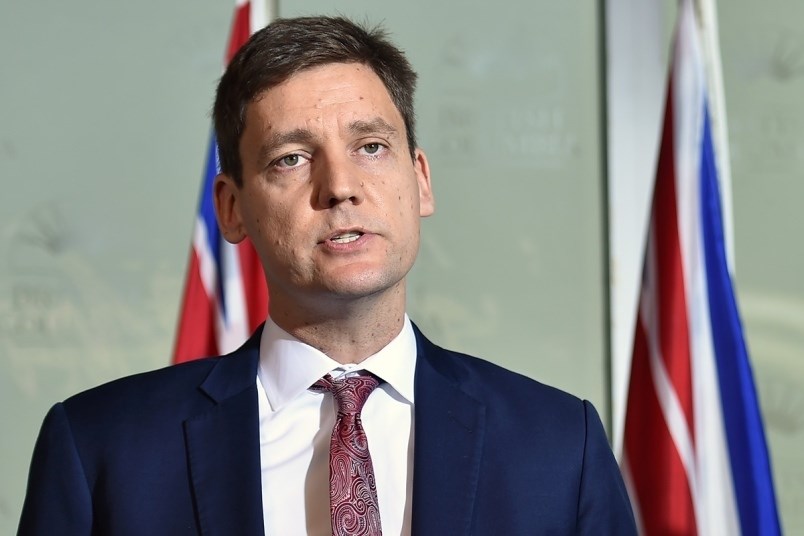He hasn’t even been in the job for a year yet, but David Eby is already establishing himself as perhaps the dominant and most powerful figure in B.C. politics (aside from his boss, Premier John Horgan).
Eby is the attorney general, yet his plate is filled with policies and files that extend well beyond the traditional scope of the province’s top attorney. And those files have some of the furthest reaching implications.
Other NDP cabinet ministers are having an impact: Solicitor General Mike Farnworth is showing a deft touch handling legalized cannabis, Health Minister Adrian Dix has rolled out some impressive reforms, Finance Minister Carole James is a steady hand on the financial purse and Jobs Minister Bruce Ralston is quietly earning plaudits in that portfolio.
But none of them are dealing with the kinds of things that have the potential of completely rearranging the B.C. political scene. Eby is doing precisely that.
His recent release of a bombshell report on money laundering operations in some Lower Mainland casinos will have reverberations that could be felt for a long time.
Eby must have suspected, when he asked Peter German to conduct the investigation into money laundering, that the eventual findings would be explosive and cast the previous B.C. Liberal government in a horrible light.
And that is exactly what happened.
The report effectively shredded the reputations of former key cabinet ministers and soiled – perhaps forever – the B.C. Liberal party brand. By commissioning the report, Eby single-handedly inflicted more damage on the NDP’s arch rivals than anyone could have possibly imagined just a short time ago.
If he opts to commission a public inquiry into money laundering, the B.C. Liberals could be on the defensive for months, if not years, to come (of course, there is no guarantee that a public inquiry would actually accomplish much; everyone involved gets a taxpayer-funded lawyer and things can grind to a halt over time).
German’s report suggested money laundering could be a major component in some of B.C.’s real estate markets. He didn’t provide any real evidence of widespread abuse, but he did point out several examples of criminals being involved in Vancouver’s red-hot real estate market.
If Eby elects to delve into that area and such a probe (presumably conducted by German) turns up all kinds of nefarious activities the government’s balanced budget may begin to teeter.
That’s because real estate is a huge part of the B.C. economy and provides a giant chunk of revenue to government: more than $2 billion annually from property transfer tax revenues alone.
Eby is also in charge of another potentially historic issue: the upcoming referendum on electoral reform.
The referendum could redefine politics as we know it in this province. A switch to proportional representation would likely cause both the coalitions that effectively makeup both the B.C. Liberals and the NDP to fall apart, or at lease rearrange themselves along different lines.
Social conservatives would likely quit the B.C. Liberals, and the tensions that exist between environmental activists and pro-job labour activists could very well cause those two groups to go their separate ways within the NDP.
Officially, Eby is a neutral referee in the debate. But he has been accused of “stacking the deck” in favour of a shift to a proportional representation system. If that is the outcome, it will be the end of majority governments and Eby will be assigned either fault, or congratulations, for that development.
Finally, Eby is responsible for fixing the financial mess that exists at ICBC. Big changes are needed, and some of them will undoubtedly prove unpopular.
He has already announced some changes (a limit on legal proceedings and injury payouts for example) but much more needs to be done.
Our car insurance rates are likely to rise significantly in any event, and Eby will likely navigate that tricky road with difficulty.
Put it all together, and Eby may be on his way to affecting housing prices, weakening his government’s balanced budget, determining our car insurance rates, laying the groundwork for changing the voting system, and therefore putting in doubt the fate of our two dominant political parties.
Sounds pretty powerful to me.
Keith Baldrey is chief political reporter for Global BC. [email protected]
What are your thoughts? Send us a letter via email by clicking here or post a comment below.



